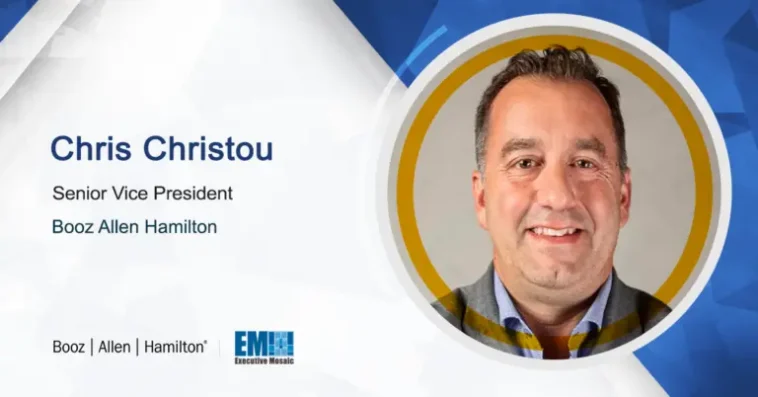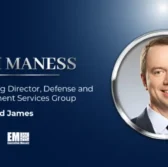Booz Allen Hamilton Senior Vice President Chris Christou and Michael Jacobs, the company’s chief engineer, said artificial intelligence could play a role in enabling safer spectrum sharing as the U.S. government advances 5G and 6G technologies.
In an article published Tuesday in RCR Wireless News, Christou and Jacobs outlined some approaches to look at when considering widescale AI implementation to enable spectrum sharing and the first is testing with legacy systems.
“Older tech impacts the efficacy of AI, so it is critical to be realistic and meet stakeholders where they are on the digital continuum,” they wrote. “AI solutions for spectrum sharing must also be tested in mixed-signal environments that simulate the effect of real-world conditions, such as land clutter, atmospheric obstruction and the effects of buildings and terrain that result in signal fading and multipath effects which can distort actual received signals.”
The Booz Allen executives stressed the need to consider the competing demands of multiple stakeholders and to leverage hybrid approaches.
Jacobs and Christou also cited the potential of optimizing the use of spectrum real estate.
“The 3.1-3.45 GHz portion of the midband, for example, is currently in the spotlight as a leading candidate for sharing between future 5G networks and existing DOD systems,” they noted. “Itinerant use of this band, along with deterministic solutions for radar detection and mitigation, make this band a strong candidate for AI-based spectrum coexistence.”

Find out the latest developments and trends in the field at the Potomac Officers Club’s 5G Forum on May 22. Register here to attend this important event.





